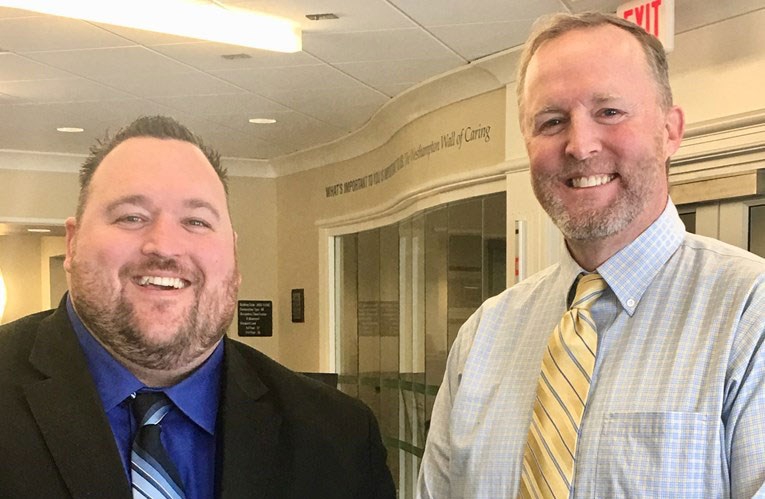- Home
- It's All About Community
- Chesapeake Bank Blog
- Funding your business? Here’s what you need to know ahead of the request

Funding your business? Here’s what you need to know ahead of the request
When it comes to funding your business, choosing the right method can be overwhelming. From Investors, Pay Day Loans, Lines of Credits, or Bank Loans, which option will be the best for you?
Lucky for you, two members of our Richmond team share their insight on this topic. Read the post below to hear thoughts from David Younce, our Commercial Lender in Chesterfield, and Sam Poole, Retail Regional Manager, Westhampton.
“I want to try and get a loan for my business” is commonly heard by David when he sits down to talk with customers. But surprisingly, David believes that you should never ‘try’ to get a loan. Instead, every business owner should instead try to understand where they are financially. If they can get a good handle on this information and where they stand, then they should be able to walk into a bank and confidently make their request.
“Here’s what I need,” said David. “Here are my financials. They are in good standing, and this is what I believe that I qualify for based on what I’ve seen. What are my rates?”
Unfortunately, that’s not the case for many. All too frequently owners report that they were successful for several years and didn’t need the bank. They were making money. They didn’t have a reason to talk about lending.
“It can be frustrating for both the owner and the banker when it becomes too late to lend. It’s important to have that relationship with your banker early on so that they can understand your story and help guide you before it gets to that point. That’s our job. That’s what we do,” said David. Either way, for many, there comes a time when that changes and there becomes a need.
But who do you go to when that happens?
Well, there are several options. Some borrow from family and friends, which we would never recommend. Others use services like hard money lenders who are similar to “payday loan” companies. You may be able to get your money faster, but it will cost you dearly.
Banks may be more stringent where lending is concerned, but they won’t charge you near as much in interest. Plus, they are honest, fair, and regulated. A bank doesn’t want to put you in a position that you can’t get out of. ‘Fast money services’ aren’t always monitored.
Another option is getting an investor. A good investor is someone who believes that your business will be successful. They will provide you the money, and tell you what kind of return they want. If your business does well, they may get a bigger return. On the flip side, an investor could also lose everything if your business doesn’t succeed, whereas a bank has a fixed return and will still earn on what was loaned.
But a bank will also need proof that you can repay the loan. It’s similar to a grocery store. When you go to the store to buy milk, the store wants to see that you have the five dollars to pay for it. The bank is the same way.
Of course, there are several factors that banks consider while examining your finances. Are there other sources of income, outside of this business — a business partner, or family member? Are salaries being paid out? Banks gather all of these factors and refer to them as your ‘global cash flow.
If a loan is the right solution for you, your bank should be able to look at all of this information and make recommendations. For example, if you’re buying office furniture, a loan would be the solution. If you need to fund payroll, a line of credit would make better sense here and here’s why…
“It’s our job to match up your lending purpose with the vehicle that gets the job done,” said Sam.
Any reputable bank won’t want you leveraged too tightly or put in a position that you can’t repay your loan. This is an advantage of using a community bank, one where we can get to know our customers and their personal needs, long before a need for money comes into play.
Both David and Sam have been in the banking industry for 20+ years and work together out of our Westhampton office. David works directly with business development and Sam oversees retail for our Richmond market. Please reach out to them to see how they can help you with your financial goals. | David Younce | Sam Poole |
-
Categories
Posts by Topic
- Business (98)
- It's All About Community (73)
- Personal Finance (70)
- CFS News (49)
- Employees (46)
- Northern Neck (37)
- Middle Peninsula (34)
- Chesapeake Payment Systems (27)
- Richmond (26)
- Williamsburg (20)
- Fraud & Security (17)
- Home Buying (12)
- Chesapeake Wealth Management (11)
- Flexent (11)
- Customer Testimonials (7)
- COVID-19 (6)
- Chesterfield (5)


